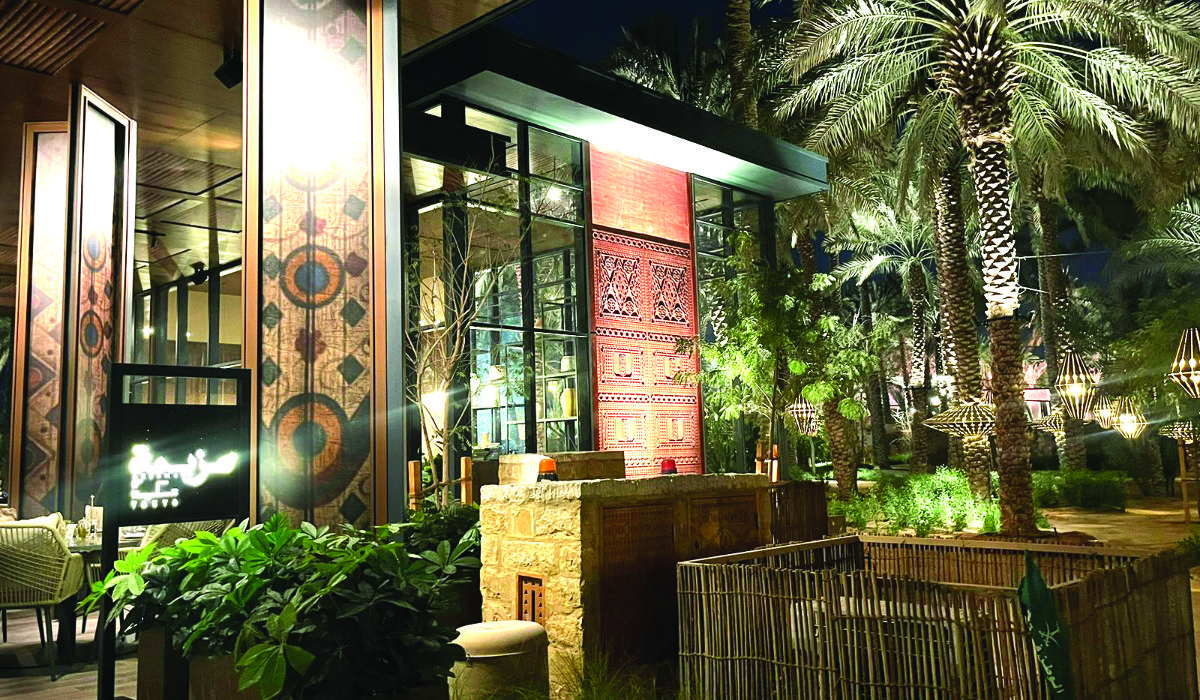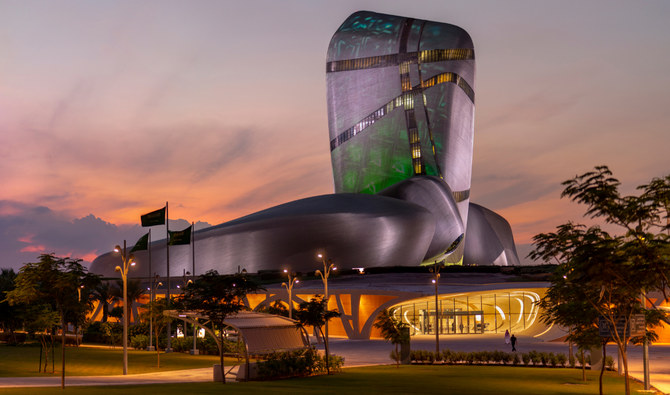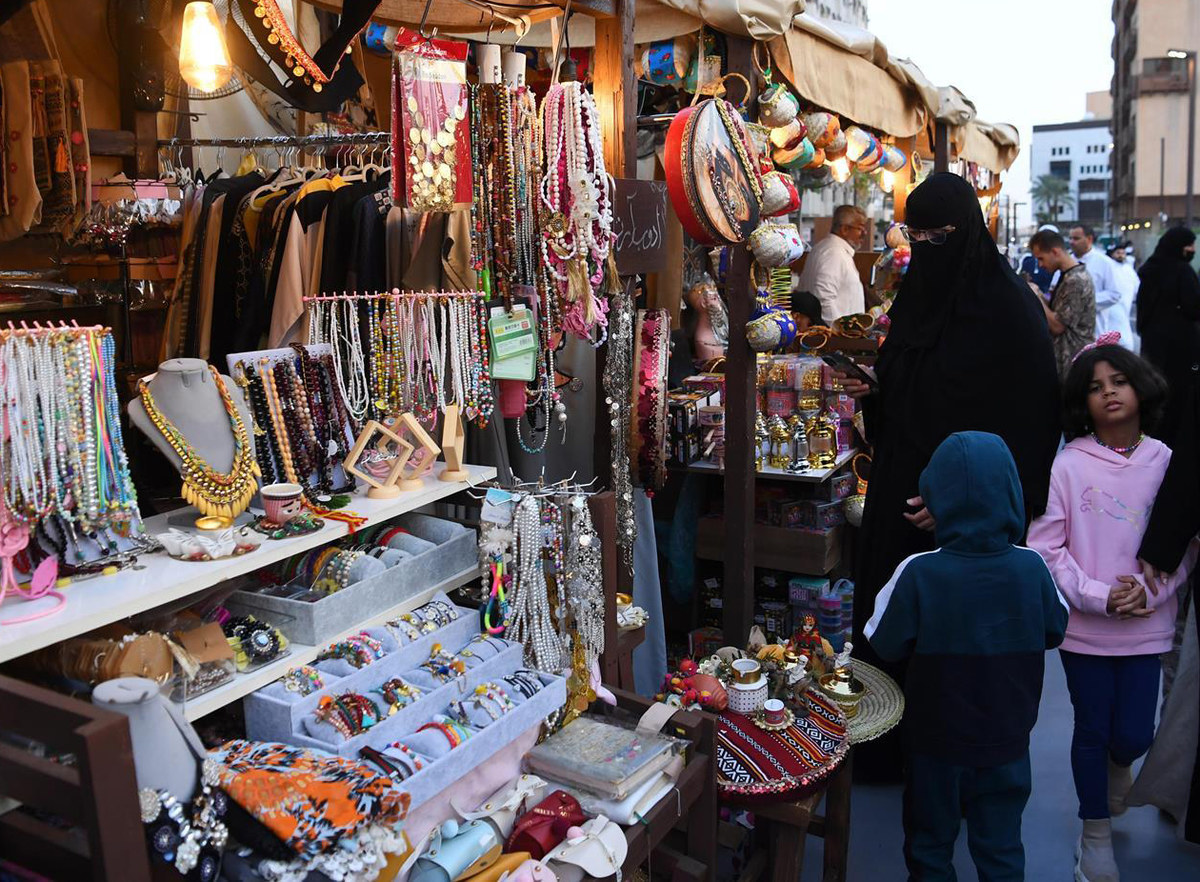RIYADH: Every year on Feb. 22, Saudi Arabia celebrates the historical and cultural roots of the Kingdom through Founding Day, commemorating the establishment of the First Saudi State. What better way to celebrate Founding Day than by exploring the hidden gems that showcase the history and traditions of each city.
Bujairi Terrace and At-Turaif in Diriyah
Known as “The Jewel of the Kingdom,” Diriyah, the capital of the First Saudi State, dates back to the mid-ninth century.
Situated in Diriyah, Bujairi Terrace provides exceptional views of the UNESCO World Heritage Site of At-Turaif.
Inspired by Najdi architecture to evoke images of the past, Bujairi Terrace in Diriyah is the ideal spot for celebrations, offering visitors a curated Michelin-star gastronomic experience and a variety of interactive activities and events.
Surrounded by mud-brick Najdi architecture, guests are treated to over 20 fine-dining restaurants featuring Saudi and international cuisine.

The prominent citadel of Salwa Palace, made from handmade mud bricks three centuries in the historic At-Turaif district, the first capital of the Saudi dynasty, was illuminated on Dec. 4 with a spectacular light display in celebration of its opening to the public. (Supplied)
Layali Diriyah
Returning for its second year and running until March 10, Layali Diriyah is an open-air heritage farm bridging local and contemporary dining experiences, making it an ideal location for celebrating Founding Day.
Surrounded by palm trees and twinkling lights, Layali Diriyah takes a modern twist on a traditional Najdi farm, transforming it into an entertainment hub featuring live musical performances and poetry shows.
Guests can also enjoy the beauty of the palm trees surrounding the farm while dining and experiencing a range of contemporary art by local and global artists.

Azeema, one of the restaurants at Layali Diriyah, offers traditional Saudi cuisine. (Supplied)
Najd Village, Riyadh
For those craving the authentic Saudi flavor in honor of Founding Day, Najd Village specializes in regional cuisine, with each dish highlighting the heritage of a specific region.
There are two Najd Villages operating in Riyadh: one is situated on Takhassoussi Road, and the other is on Abu Bakr Road. The restaurant serves a family-style menu of traditional dishes like jareesh or kasbah, accompanied by fish, chicken, lamb, and camel meat.
For those with a sweet tooth, the restaurant offers a range of traditional desserts and snacks, including hininy, mrahif, and kleija.

Najd Village specializes in regional cuisine, with each dish highlighting the heritage of a specific region. (Supplied)
Ithra, Dhahran
A celebration of history through musical performances, educational exhibitions, and hands-on labs, Ithra, known as the King Abdulaziz Center for World Culture in Dhahran, offers a range of festivities to celebrate Founding Day.
The Ithra Museum is home to five galleries, featuring artworks and installations by local and international artists covering Middle Eastern Art, Saudi culture, Islamic art, the natural history of the Arabian Peninsula, and the Archive gallery.
Ithra also offers interactive classes and workshops in the Children’s Museum.
The state-of-the-art building includes a library, theater, cinema, ideas lab, and a variety of restaurants for dining.

The King Abdulaziz Center for World Culture (Also known as Ithra) is a symbol of change and diversity in modern Saudi Arabia. (Supplied)
Al-Balad, Jeddah
Al-Balad, also known as the UNESCO World Heritage Site of Jeddah, is an ideal spot for families and tourists looking to explore the customs of the historical city.
Located in the heart of Historic Jeddah, Al-Balad Bazaar celebrates the traditions and culture of Jeddah by showcasing homemade products, traditional clothing, and handicrafts in over 30 commercial outlets.
The Bazaar is part of significant efforts made by the Historic Jeddah Program to revive Saudi cultural heritage and promote the city’s status as a premier tourist destination.
The year-long Al-Balad Bazaar supports the community by providing them with retail pop-up outlets to showcase their products to visitors.
Another not-to-be-missed event taking place in Jeddah is the “Balad Al-Fann” initiative, launched by the Historic Jeddah Program.
Running until March 9, the initiative includes four art exhibitions, music programs, theatrical performances, and many interactive events for children.

Al-Balad also known as Historic Jeddah is one of the UNESCO World Heritage List. It is an ideal spot for families and tourists looking to shop at the Al-Balad Bazaar, held in a special location in the heart of Historic Jeddah. (Supplied)
Tayebat Museum, Jeddah
Al-Tayebat International City of Science and Knowledge, located in Jeddah’s Al-Faisaliyah district, offers visitors a curated representation of Jeddah’s 2,500-year-old history through detailed walking tours showcasing the city’s architecture, Islamic heritage, and culture.
Highlighting an extraordinary range of exhibits, including museums and houses, Al-Tayebat is billed as a must-see location in Jeddah.
Bringing pre-Islamic and Islamic history to life across 300 rooms in 12 buildings, the museum includes the House of Saudi Arabian Heritage, the House of Islamic Heritage, the House of International Heritage, and the public heritage exhibition.































